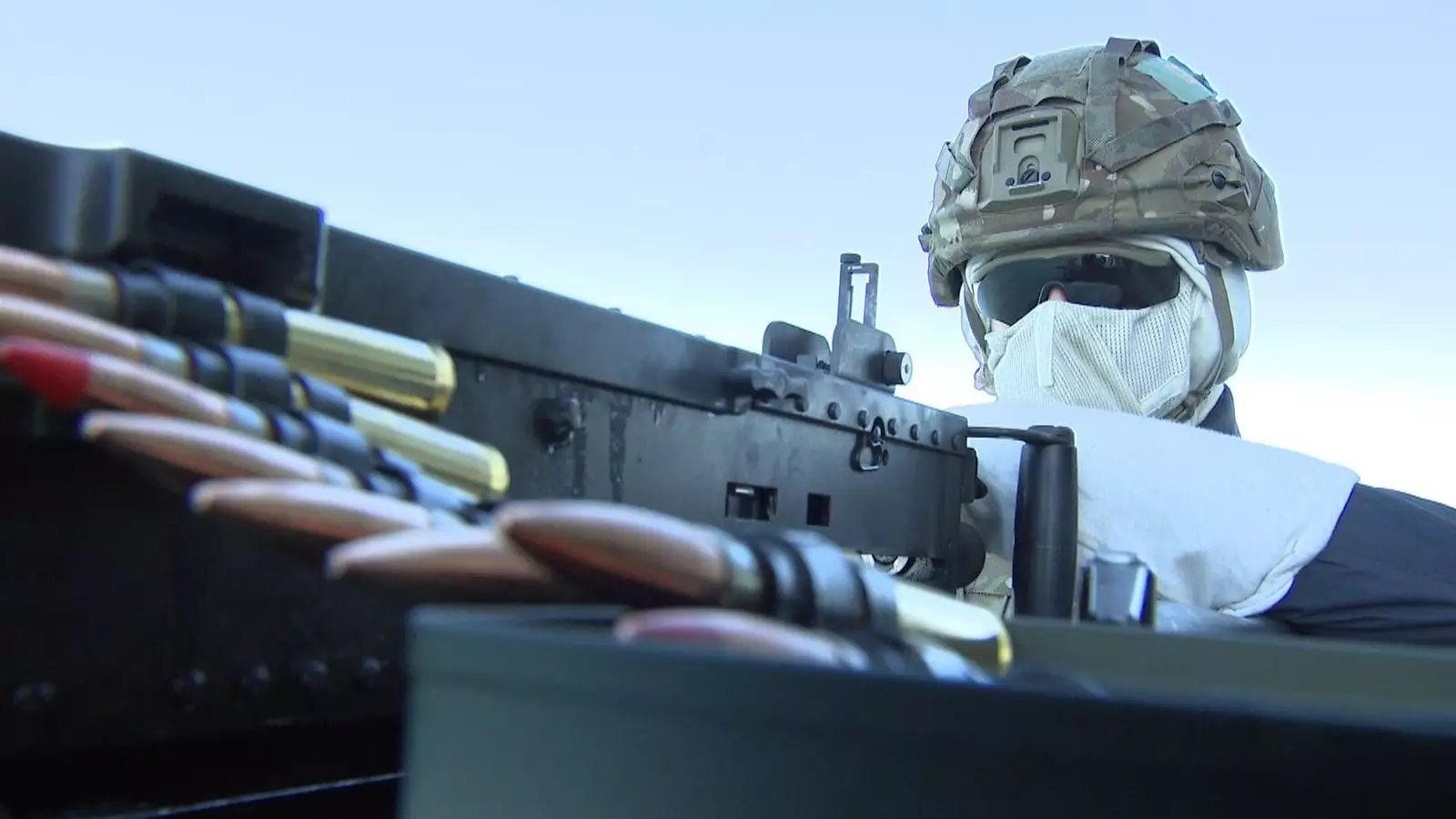As the Royal Navy prepares for its upcoming deployment to Asia with the HMS Dauntless at the forefront, one must question whether this display of naval power is a façade masking deeper issues of preparedness and resource allocation. The latest exercises off the Welsh coast, while visually impressive, raise crucial concerns about the actual effectiveness of Britain’s maritime capabilities in the face of evolving threats. The drills showcased dramatic launches of missiles and cannons, designed to engage drones and uncrewed vessels simulating hostile incursions. However, these exercises, laden with live ammunition, may contribute to an overconfidence that does not account for the complexities of modern naval warfare.
The underlying apprehension lies not merely in the prospect of drones but in the implications of looming geopolitical tensions, particularly between the United States and Iran. The HMS Dauntless barely skirts the edges of this conflict, and the assertion by armed forces minister Luke Pollard that they possess “formidable capabilities” stands as hollow bravado in the face of financial constraints and dwindling resources. For years, the Royal Navy has been a shadow of its former self, with successive governments prioritizing fiscal austerity over military funding. The announced goal of 2.5% of GDP spending by 2027 feels less like a robust investment and more like a desperate attempt to catch up with years of neglect.
A Question of Resources and Strategy
The daily operations of a vessel like the HMS Dauntless exemplify this paradox. On one hand, the crew diligently prepared for simulated threats, employing high-tech radars while authoritatively scanning the skies for potential enemy drones. On the other hand, this particular readiness is undercut by the sobering reality of a shrinking navy. The recent defense budget may hint at a commitment to improved naval readiness, but in truth, it is painfully insufficient. The modest increase of £5 billion pales in comparison to the immense challenges that loom on the horizon, including the growing sophistication of unmanned systems. When adversaries like Iran leverage drone technology against unprepared naval forces, Britain’s alleged superiority stands on shaky ground.
Moreover, while the efficacy of unmanned maritime vehicles employed by Ukraine against Russia signifies a warning for Western nations, the Royal Navy seems caught in a time warp. There is a noticeable absence of a strategic plan that integrates modern warfare tactics into operational doctrine. The justification for military readiness cannot gravitate solely around firepower showcased during drills. Rather, it requires a fundamental rethinking about how maritime threats evolve and adapt in the digital age.
The Mirage of Confidence
Witnessing the practice drills, one is struck by the fervor of the crew. The adrenaline rush of airstrikes against simulated targets instills a sense of confidence, yet we must not be lulled into complacency. Recent geopolitical shifts underscore the stark reality of an unpredictable battleground where British naval assets could face simultaneous challenges from multiple fronts. Policy correctness surrounding naval deployments can be dangerously misleading. The pattern of resource allocation prioritizing showcases rather than substantive engagement will ultimately result in dire consequences.
Pollard’s assertion of having “options” may resonate as a sound military strategy but becomes vacuous when those choices are limited by a lack of resources and manpower. Yes, naval power offers flexibility, but without meaningful investment, Britain risks relegating its forces to mere symbolic gestures rather than mature, capable protectors of national interests.
In this convoluted landscape, one wonders if the UK’s maritime doctrine is truly capable of adapting. Real challenges will not wait for budget forecasts to catch up to what has been forgotten: true combat readiness cannot be purchased or fabricated overnight. It’s a complex web of strategic foresight, troop morale, and funding that must come to define the future of the Royal Navy. In this increasingly complex world, the old paradigms surrounding naval supremacy need reevaluation if Britain hopes to maintain its influence and security in the maritime domain.


Leave a Reply